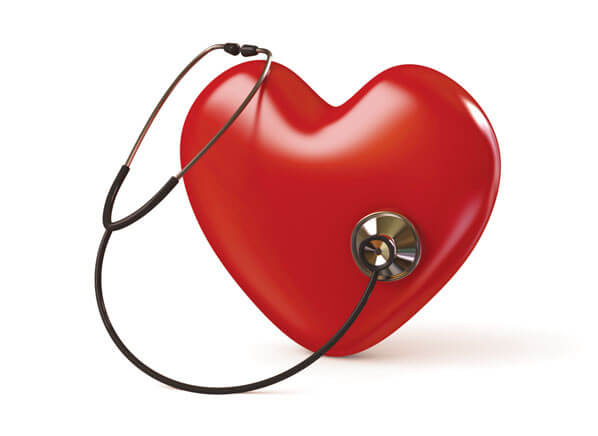How to Lower Your Risk of Heart Disease

Cardiovascular disease is responsible for 17.3 million deaths globally according to findings from the World Health Organization in 2008. It is the number one cause of death in the United States, claiming about 610,000 lives each year.
The lifestyle factors outlined below describe avoidable risks that will help you on your way to preventing or delaying the onset of cardiovascular disease. In fact, adhering to a healthy lifestyle can decrease one's risk of cardiovascular disease by as much as 46% compared to individuals who engage in habits that are damaging to one's health.
Get Active
Getting sufficient physical exercise is an important part of lowering your risk of cardiovascular disease. Physical activity includes any activity that gets your body moving and burns calories. According to The American Heart Association, adults should be getting 30 minutes of moderate aerobic exercise a day, five days a week. If you are not currently active or would like to start a more intense workout, talk to your doctor before starting a new exercise routine.
Eat a Diet Specific to Your Needs
In addition to eating a nutrient-rich, well-balanced diet, some individuals may need to pay special attention to their personal dietary needs. Going further, heart disease has genetic components along with lifestyle factors. Companies such as Pathway Genetics offer genetic testing that provides information specific to an individual's genes as it relates to nutrient absorption. This can play a large role in being able to proactively control your health to be best of your abilities.
For example, omega-3 is an essential fatty acid that reduces inflammation in the body and helps prevent or delay the onset of chronic conditions such as cardiac disease. Genetic testing tells your doctor if you have a high risk of an inhibited ability to absorb omega-3. Knowing this can help your doctor construct a diet that best fits your needs and could even prevent or delay the onset of chronic conditions through tailored lifestyle changes.
Control Blood Pressure and Cholesterol Levels
High blood pressure is defined as having a systolic blood pressure reading of 140 mmHg or greater, or a diastolic blood pressure reading of 90 mmHg or higher. Consistently high blood pressure can cause blood vessels to weaken or become more narrow, allowing them to clog easily.
Furthermore, increased levels of LDL cholesterol are strongly linked to cardiovascular disease. Over time, a high amount of LDL cholesterol in the blood can cause a buildup of plaque on the linings of the arteries, causing them to become obstructed. This obstruction may lead to cardiovascular disease that may result in a heart attack or stroke.
To control cholesterol levels and high blood pressure, eating a healthy diet (low in saturated fat, cholesterol, and refined sugars), getting enough regular exercise, and taking any prescribed medications as indicated by your doctor will be the best tools at your disposal.
Avoid Smoking and Limit Alcohol Consumption
Smoking increases blood pressure and damages blood vessels. For this reason, it is defined as the second leading cause of cardiovascular disease by the World Heart Federation. However, smoking is a risk factor that can be avoided. If you currently smoke, you can lower your risk of heart disease close to that of someone who has never smoked by quitting.
Excessive alcohol consumption can lead to increased blood pressure and has been linked to multiple cardiac diseases that can cause episodes such as heart failure and stroke. Limiting alcohol intake can help prevent alcohol-related cardiovascular complications.
Work With Your Doctor
Although there is no guarantee that heart disease will be 100% prevented, choosing to engage in healthy lifestyle choices can significantly lower your risk of developing cardiovascular disease. If you’d like to learn more about how you can make better choices regarding your cardiovascular health, talk to your doctor. Your healthcare provider can walk you through specific actions that are relevant to your current health and daily routine.
References
https://www.nytimes.com/2016/11/14/health/genetic-heart-disease-risk-eased-by-healthy-habits-study-finds.html?_r=0
http://www.northwestern.edu/newscenter/stories/2010/11/heart-disease.html
http://umm.edu/health/medical/altmed/supplement/omega3-fatty-acids
http://articles.mercola.com/sites/articles/archive/2016/07/11/health-benefits-omega-3-fats.aspx
http://www.heart.org/HEARTORG/HealthyLiving/QuitSmoking/QuittingResources/Smoking-Cardiovascular-Disease_UCM_305187_Article.jsp#.WIrmrLYrK8U
http://www.heart.org/HEARTORG/Conditions/Cholesterol/WhyCholesterolMatters/Why-Cholesterol-Matters_UCM_001212_Article.jsp#.WIro2rYrK8U
http://www.nhs.uk/Conditions/Coronary-heart-disease/Pages/Prevention.aspx
http://www.webmd.com/heart-disease/guide/heart-disease-risk-factors
https://www.heart.org/HEARTORG/HealthyLiving/HealthyEating/Nutrition/The-American-Heart-Associations-Diet-and-Lifestyle-Recommendations_UCM_305855_Article.jsp
http://www.world-heart-federation.org/cardiovascular-health/cardiovascular-disease-risk-factors/hypertension/
839GYLCCC1992



Leave a Reply